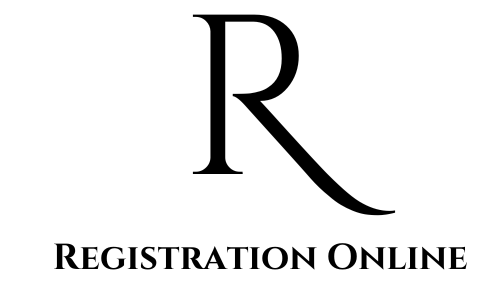How To Register Trademark In Pakistan
Opening Statement: Importance of Trademark Registration for Businesses and Brands

How to Register a trademark in Pakistan serves as a vital tool in distinguishing your products and services from those of your competitors. Registering a trademark not only helps in building brand recognition but also provides legal protection against uncertified use. This ensures that hard-earned reputation and customer trust remain unbroken. Whether you are a startup or an established enterprise, securing your trademark is a fundamental step towards safeguarding your brand’s integrity and value.
Brief Overview: What a Trademark Is and Why It’s Essential for Protection in Pakistan
A trademark is a distinctive sign or indicator used by an individual or business organization to identify that the products or services to consumers with which the trademark appears originate from a unique source, and to distinguish its products or services from those of other institution. Trademarks can take many forms, including names, logos, slogans, or even unique packaging.
In Pakistan, the protection of trademarks is governed by the Trademark Ordinance 2001, which ensures that businesses can secure exclusive rights to their marks. This legal protection is essential as it prevents others from using similar signs that could confuse consumers or weak your brand’s distinctiveness. By registering your trademark with the Intellectual Property Organization of Pakistan (IPO-Pakistan), you not only protect your brand’s position in the market but also gain the ability to impose your rights in case of violation. This registration acts as a discouragement to potential infringers and harden your brand’s identity, making it easier to build and maintain a strong market presence.
What is a Trademark?

Definition: Explanation of What Compose a Trademark
A trademark is a legally recognized sign, design, or expression that identifies and distinguishes the goods or services of one entity from those of others. This could be a word, phrase, symbol, logo, or a combination of these elements. The primary function of a trademark is to serve as an indicator of the origin of goods or services, assuring consumers of a certain level of quality and consistency associated with the brand.
Types of Trademarks
- Logos: These are graphic symbols that represent a brand or product. Logos are often the most recognizable aspect of a trademark.
- Names: This includes brand names, company names, or product names that uniquely identify a business or its offerings.
- Symbols: Simple designs or icons that are associated with a particular brand.
- Slogans: Catchy phrases or taglines that convey the essence of a brand or its products.
- Packaging: Unique shapes, colors, or designs of product packaging that are distinctive and recognizable.
- Sounds: Specific sounds or jingles associated with a brand (e.g., the Intel chime).
- Colors: Specific color schemes that are uniquely tied to a brand (e.g., the Tiffany blue).
Importance: Benefits of Trademark Registration for Businesses
- Legal Protection: Registering a trademark provides legal protection against unauthorized use. This ensures that others cannot use a similar mark that could confuse consumers.
- Brand Recognition: A registered trademark helps in establishing and enhancing brand recognition. It signifies to consumers that the products or services bearing the trademark come from a single source, ensuring consistency in quality.
- Exclusive Rights: Trademark registration grants the owner exclusive rights to use the mark on goods and services within the registered categories. This exclusivity helps in maintaining a competitive edge in the market.
- Asset Value: Trademarks are intangible assets that can appreciate in value over time. They can be sold, licensed, or used as security for loans, providing financial benefits to the business.
- Deterrence: A registered trademark deters potential infringers from using similar marks. The public record of registration acts as a warning to others about the legal ownership of the mark.
- Enhanced Credibility: Having a registered trademark enhances the credibility and professionalism of a business, building trust with consumers and partners.
- Global Protection: Through treaties and international agreements, a registered trademark can often be protected in other countries, helping businesses expand globally without legal issues.
- Legal Remedies: In cases of infringement, the trademark owner has the right to take legal action to enforce their rights and seek remedies, including damages and injunctions against the infringer.
Registering a trademark is a crucial step for businesses to protect their brand identity, build consumer trust, and secure their market position. It provides a solid foundation for brand growth and longevity.
Legal Framework for Trademark Registration in Pakistan
Trademark Ordinance 2001: Overview of the Governing Law
The legal foundation for trademark registration in Pakistan is established under the Trademark Ordinance 2001. This comprehensive law formulation provides the rules and regulations for the registration, protection, and enforcement of trademarks in the country. The key features of the Trademark Ordinance 2001 include:
- Definition and Scope: It defines what constitutes a trademark and the types of marks that can be registered.
- Registration Process: Detailed procedures for the application, examination, publication, and registration of trademarks.
- Rights of Trademark Owners: The ordinance outlines the exclusive rights appreciate to trademark owners, including the right to use the mark, prevent unauthorized use, and transfer ownership.
- Infringement and Remedies: Provisions for addressing trademark infringement, including legal actions and remedies available to the trademark owner.
- Renewal and Maintenance: Guidelines for the renewal of trademark registrations and maintaining their validity over time.
- International Agreement: Compliance with international deals and agreements related to intellectual property rights, allowing for the extension of trademark protection beyond Pakistan.
Intellectual Property Organization of Pakistan (IPO-Pakistan): Role and Functions
The Intellectual Property Organization of Pakistan (IPO-Pakistan) is the primary government body responsible for overseeing the administration and enforcement of intellectual property rights, including trademarks, in Pakistan. Established to streamline and modernize the intellectual property system in the country, IPO-Pakistan plays a critical role in promoting innovation and protecting the rights of creators and businesses.
Key Functions of IPO-Pakistan:
- Registration of Trademarks: IPO-Pakistan manages the trademark registration process, from application to issuance of certificates. This includes conducting examinations, publishing trademarks in the journal, and handling oppositions.
- Awareness and Education: The organization conducts awareness campaigns and educational programs to inform businesses and the public about the importance of intellectual property rights and the benefits of trademark registration.
- Policy Development: IPO-Pakistan formulates and updates policies related to intellectual property to ensure they are in line with international standards and address the evolving needs of the market.
- Implementation of Rights: The organization collaborates with law implementation agencies to conflict trademark violation and fake goods, ensuring that trademark owners’ rights are confirm.
- International Cooperation: IPO-Pakistan works with international organizations and participates in global treaties to facilitate cross-border protection of trademarks and other intellectual property rights.
- Support and Guidance: Providing support and guidance to individuals and businesses throughout the trademark registration process, including assistance with searches, application preparation, and responding to objections.
By functioning as the central authority for intellectual property matters, IPO-Pakistan ensures that trademark registration and protection are efficiently managed, contributing to a secure and reliable environment for businesses to thrive.
Steps about How To Register Trademark in Pakistan
Step 1: Preliminary Search
Conducting a Trademark Search: Importance of Ensuring Your Trademark is Unique
Before filing for trademark registration, it’s crucial to conduct a preliminary search to ensure that your trademark is unique and not already in use by another entity. This step helps avoid potential conflicts and rejections by identifying existing trademarks that may be similar to yours. A thorough search can save time and resources by preventing the need to rebrand or redesign your trademark later on.
How to Conduct the Search: Online Tools and IPO-Pakistan Resources
IPO-Pakistan offers an online database where you can search for existing trademarks. This database allows you to check for identical or similar marks that are already registered or pending registration. Additionally, various online tools and trademark search services can assist in conducting a comprehensive search. It’s advisable to use multiple resources and consider seeking professional assistance for an in-depth analysis.
Step 2: Filing the Application
Application Form: Details Required for the Application
Once you have confirmed that your trademark is unique, the next step is to file an application with IPO-Pakistan. The application form requires the following details:
- Applicant’s name and address.
- Representation of the trademark (logo, name, etc.).
- Description of goods or services associated with the trademark.
- Date of first use of the trademark, if applicable.
- Power of attorney if the application is filed through an agent.
Where to File: Online vs. Physical Submission
Applications can be filed either online through the IPO-Pakistan website or by submitting physical forms at the IPO-Pakistan offices. Online submission is often more convenient and quicker, providing instant confirmation of receipt.
Step 3: Examination of Application
Initial Examination: What IPO-Pakistan Checks For
After submission, IPO-Pakistan conducts an initial examination of the application. The examination includes checking for:
- Compliance with formal requirements.
- Clarity and completeness of the application.
- Conflicts with existing registered or pending trademarks.
Possible Objections: Common Reasons for Objections and How to Address Them
If any issues are found, IPO-Pakistan may issue an examination report listing objections. Common reasons for objections include:
- Similarity to an existing trademark.
- Use of prohibited or deceptive elements.
- Lack of distinctiveness.
Step 4: Publication in the Trademark Journal
Publication: Purpose and Process
Once the application passes the initial examination, the trademark is published in the IPO-Pakistan Trademark Journal. The purpose of publication is to inform the public and allow any third parties to oppose the registration if they believe it violate on their rights.
Opposition Period: What Happens if There is an Opposition and How to Handle It
The opposition period lasts for two months from the date of publication. If no opposition is filed, the application proceeds to registration. If an opposition is filed, the applicant must respond to the opposition notice, providing arguments and evidence to support their trademark. Both parties may need to attend hearings, and IPO-Pakistan will make a decision based on the merits of the case.
Step 5: Registration and Certificate Issuance
Final Approval: What Happens After the Opposition Period
If there are no oppositions or if the opposition is resolved in favor of the applicant, IPO-Pakistan will proceed with the final approval of the trademark application.
Certificate Issuance: Receiving Your Trademark Registration Certificate
Upon final approval, IPO-Pakistan issues a trademark registration certificate. This certificate is proof of the exclusive rights granted to the trademark owner, allowing them to use the trademark in connection with the registered goods or services and to enforce their rights against infringers. The trademark is now officially registered, providing legal protection and adding value to the brand.
Costs and Fees
Application Fees: Breakdown Of Costs Associated with How To Register Trademark In Pakistan
Registering a trademark in Pakistan involves several fees, which vary depending on the nature of the application and the number of classes of goods or services. Here is a breakdown of the typical costs:
- Preliminary Search Fee: While optional, conducting a preliminary search through IPO-Pakistan’s database can help ensure that your trademark is unique. This may involve a nominal fee if done through official channels.
- Application Filing Fee: The primary fee for filing a trademark application. This fee covers the processing and initial examination of the application. The cost may differ based on the type of trademark (e.g., word mark, logo) and the number of classes under which the trademark is registered.
- Publication Fee: A fee is charged for publishing the trademark in the Trademark Journal. This step is necessary to inform the public and allow for any oppositions to be raised.
- Registration Fee: Upon successful examination and publication, a final registration fee is required to issue the trademark registration certificate.
It’s essential to check the latest fee schedule on the IPO-Pakistan website, as fees may be subject to change.
Additional Costs: Potential Additional Expenses
- Legal Fees: If you choose to hire a trademark attorney or agent to assist with the application process, there will be additional costs for their services. Professional assistance can be beneficial for ensuring a smooth and successful registration process, especially in handling complex cases or objections.
- Amendment and Renewal Fees: If any amendments to the application are required during the examination process, additional fees may be incurred. Additionally, trademarks must be renewed periodically (typically every 10 years) to maintain their validity, which involves renewal fees.
- Opposition Handling Fees: If an opposition is filed against your trademark application, there will be costs associated with responding to the opposition. This may include legal fees for drafting and submitting a response, attending hearings, and providing evidence.
- Assorted Fees: Other potential costs include fees for obtaining certified copies of documents, making changes to the applicant’s name or address, and handling any procedural requirements that arise during the registration process.
Summary of Potential Costs:
- Preliminary Search Fee (optional)
- Application Filing Fee
- Publication Fee
- Registration Fee
- Legal Fees (if hiring an attorney)
- Amendment Fees (if applicable)
- Renewal Fees (every 10 years)
- Opposition Handling Fees (if applicable)
- Miscellaneous Fees (certified copies, procedural changes)
Understanding these costs and budgeting accordingly can help you navigate the trademark registration process more effectively.
Duration and Renewal of a Trademark
Validity Period: How Long a Trademark Registration Lasts in Pakistan
In Pakistan, a registered trademark is valid for an initial period of 10 years from the date of registration. This period of validity provides the trademark owner with exclusive rights to use the trademark in connection with the goods or services for which it was registered. Maintaining the registration ensures continued protection and prevents others from using a similar mark that could confuse consumers.
Renewal Process: Steps to Renew a Trademark and Associated Fees
To maintain the protection of a trademark, it must be renewed every 10 years. The renewal process ensures that the trademark remains active and continues to provide legal protection for the brand. Here are the steps involved in the renewal process:
- Monitor the Renewal Deadline: Trademark owners should keep track of the renewal deadline, which is 10 years from the registration date. IPO-Pakistan typically sends a reminder notice a few months before the expiration date, but it is the owner’s responsibility to ensure timely renewal.
- Prepare the Renewal Application: The trademark owner or their authorized agent must prepare a renewal application. This application should include the trademark registration number, the name and address of the owner, and any other required details.
- Submit the Renewal Application: The completed renewal application must be submitted to IPO-Pakistan. This can be done online through the IPO-Pakistan website or by submitting physical forms at the IPO-Pakistan offices.
- Pay the Renewal Fee: Along with the renewal application, a renewal fee must be paid. The fee covers the cost of processing the renewal and extending the trademark’s validity for another 10 years. It is important to check the current fee schedule on the IPO-Pakistan website, as fees may be subject to change.
- Receive Renewal Confirmation: Once the renewal application and fee are processed, IPO-Pakistan will issue a renewal confirmation. This confirmation serves as proof that the trademark’s validity has been extended for another 10 years.
- Repeat the Process: The renewal process must be repeated every 10 years to maintain continuous protection for the trademark. Regular monitoring of the renewal deadlines and timely submission of renewal applications are crucial to avoid the risk of losing trademark rights.
Summary of the Renewal Process:
- Monitor the renewal deadline (10 years from the registration date).
- Prepare and submit the renewal application.
- Pay the required renewal fee.
- Receive confirmation of renewal from IPO-Pakistan.
- Repeat the process every 10 years.
Renewing a trademark is a straightforward process that ensures ongoing legal protection and helps maintain the brand’s market position. By adhering to these steps, trademark owners can safeguard their intellectual property rights and continue to benefit from the exclusive use of their trademarks.
Tips for a Successful Trademark Registration
Unique and Distinctive Marks: Ensuring Your Trademark Stands Out
One of the most crucial aspects of a successful trademark registration is creating a mark that is unique and distinctive. Here are some tips to ensure your trademark stands out:
- Avoid Common Words: Use words or phrases that are not commonly used in your industry. Common terms may be difficult to protect and might not qualify for trademark registration.
- Create Original Logos: Design a logo that is original and not similar to existing logos. Unique designs are more likely to be accepted and protected.
- Incorporate Distinctive Elements: Use distinctive elements like unusual fonts, colors, or graphic designs that make your trademark easily recognizable.
- Avoid Descriptive Marks: Trademarks that describe the goods or services directly are often rejected. Aim for marks that are suggestive, arbitrary, or fanciful.
By ensuring your trademark is unique and distinctive, you increase the chances of successful registration and robust legal protection.
Accurate Documentation: Importance of Correct and Complete Documentation
Accurate and complete documentation is essential for a smooth trademark registration process. Here are key points to consider:
- Complete Application Form: Ensure that all required fields in the application form are accurately filled out. This includes the applicant’s details, representation of the trademark, and description of goods or services.
- Clear Representation: Provide a clear and high-quality representation of the trademark, whether it is a logo, name, or other design. This helps avoid any misunderstandings during the examination process.
- Correct Classification: Accurately classify the goods or services associated with your trademark according to the Nice Classification. Incorrect classification can lead to delays or rejections.
- Supporting Documents: Include all necessary supporting documents, such as proof of use if applicable, and any authorizations or powers of attorney if the application is filed through an agent.
Proper documentation helps prevent delays and increases the likelihood of a successful registration.
Professional Assistance: When to Seek Help from Trademark Attorneys or Consultants
While it is possible to file a trademark application on your own, seeking professional assistance can be beneficial, especially in complex cases. Here’s when and why to consider professional help:
- Complex Applications: If your trademark involves intricate designs, multiple classes, or if you anticipate potential objections, a trademark attorney can provide expert guidance.
- Legal Expertise: Attorneys and consultants have a deep understanding of trademark laws and can help navigate the legal nuances, ensuring your application meets all legal requirements.
- Handling Objections: If your application faces objections or oppositions, professional assistance can be crucial in preparing effective responses and representing you in hearings.
- Politic Advice: Professionals can offer politic advice on creating strong and defensible trademarks, conducting thorough searches, and managing your trademark collection effectively.
- Global Registrations: If you plan to register your trademark in multiple countries, a professional with international expertise can streamline the process and handle different authority requirements.
Common Mistakes to Avoid
Neglecting Preliminary Search: Risks of Not Conducting a Thorough Search
One of the most critical mistakes in trademark registration is failing to conduct a thorough preliminary search. Here’s why it’s crucial:
- Risk of Rejection: Without a comprehensive search, you may inadvertently apply for a trademark that is similar to an existing one. This can lead to your application being rejected or facing legal challenges later.
- Potential Infringement: Using a trademark that conflicts with an existing one can result in legal disputes and costly litigation.
- Wasted Resources: Spending time and money on an application that is likely to be rejected wastes valuable resources that could be better invested elsewhere.
Conducting a thorough preliminary search helps identify potential conflicts early on, allowing you to make informed decisions and avoid unnecessary complications.
Ignoring Legal Advice: Importance of Professional Guidance
Another common mistake is proceeding with the trademark registration process without seeking legal advice or guidance from professionals. Here’s why it’s important to consult with experts:
- Complexity of Laws: Trademark laws can be intricate and vary between jurisdictions. A legal expert can navigate these complexities and ensure compliance with all legal requirements.
- Strategic Advice: Professionals can provide strategic advice on creating strong trademarks, conducting searches, and managing objections or oppositions.
- Risk Weakening: Legal advisors can help anticipate potential issues and take preventive measures to protect your trademark rights.
By seeking professional guidance, you reduce the risk of errors, increase the likelihood of successful registration, and safeguard your brand’s integrity.
Inaccurate Information: Consequences of Providing Incorrect Details in Your Application
Providing inaccurate or incomplete information in your trademark application can have serious consequences. Here’s what can happen:
- Application Rejection: IPO-Pakistan requires accurate information to process applications. Inaccurate details or missing information can lead to rejection or delays.
- Legal Challenges: Inaccuracies can undermine the validity of your trademark registration, making it vulnerable to challenges or cancellations by third parties.
- Wasted Time and Resources: Correcting mistakes in the application process can be time-consuming and costly. It’s crucial to submit accurate information from the outset to avoid such setbacks.
To prevent these issues, double-check all details before submitting your application and consider seeking professional assistance to ensure accuracy and completeness.
Avoiding these common mistakes is essential for a smooth and successful trademark registration process. By conducting thorough searches, seeking legal advice, and providing accurate information, you enhance your chances of securing robust protection for your trademark and maintaining its integrity in the marketplace.
Conclusion
Summary: Recap of the Key Steps and Benefits of How To Register Trademark In Pakistan
Registering a trademark is a pivotal step for businesses to protect their brand identity and gain exclusive rights to their distinctive marks. Here’s a recap of the key steps and benefits:
- Steps to Registration: Start with a preliminary search to ensure your trademark is unique. File your application with accurate documentation and navigate the examination and publication processes. Finally, secure your trademark through registration and renew it periodically to maintain protection.
- Benefits of Registration: Trademark registration provides legal protection against unauthorized use, enhances brand recognition, and adds value to your business. It allows you to enforce your rights and prevent others from exploiting your brand’s reputation.
- Legal Framework and Costs: Understanding the Trademark Ordinance 2001, the role of IPO-Pakistan, and associated costs and fees is crucial for navigating the registration process effectively.
Call to Action: Encouraging Businesses to Protect Their Brand by Registering Their Trademarks
As you embark on your business journey or seek to expand your brand presence, securing your trademarks should be a priority. By registering your trademarks, you safeguard your intellectual property, build trust with customers, and establish a strong foundation for growth and success. Don’t wait until it’s too late – take proactive steps today to protect your brand and ensure its longevity in the marketplace.
Whether you’re a startup looking to establish your brand or an established business aiming to protect your market position, trademark registration is an essential investment. Start the process now and pick the rewards of a protected and recognizable brand identity in the future.
Protect your brand. Register your trademark today.
Additional Resources
Useful Links
Here are some useful links to assist you in the trademark registration process in Pakistan:
- Intellectual Property Organization of Pakistan (IPO-Pakistan) Website: Official website providing information on trademark registration, forms, fees, and guidelines.
- Trademark Search Tool: Online tool to search for existing trademarks registered in Pakistan.
- Trademark Application Forms: Access to downloadable application forms for trademark registration.
Contact Information
For further assistance or inquiries, you can contact IPO-Pakistan directly:
- Email: info@ipo.gov.pk
- Phone: +92-51-9107250
Additionally, if you require professional legal advice or assistance with your trademark registration process, consider reaching out to experienced trademark attorneys or consultants who specialize in intellectual property law. They can provide personalized guidance and ensure that your trademark registration process is handled with expertise and efficiency.
Securing your trademark is a vital step towards protecting your brand’s identity and ensuring its long-term success. Utilize these resources to navigate the trademark registration process effectively and safeguard your intellectual property rights in Pakistan.
FAQs
Common Questions About Trademark Registration in Pakistan
Here are answers to some frequently asked questions about trademark registration in Pakistan:
1. What is a trademark?
- A trademark is a recognizable sign, design, or expression that distinguishes products or services of a particular source from those of others.
2. Why should I register a trademark?
- Registering a trademark grants you exclusive rights to use the mark in connection with your goods or services. It protects your brand identity, prevents others from using similar marks, and enhances your brand’s credibility.
3. How long does trademark registration last in Pakistan?
- Trademark registration in Pakistan is initially valid for 10 years from the date of registration. It can be renewed indefinitely for successive 10-year periods.
4. What are the steps to register a trademark in Pakistan?
- The steps include conducting a preliminary search, filing the application with IPO-Pakistan, examination of the application, publication in the Trademark Journal, and issuance of the registration certificate. Detailed steps are outlined earlier in this blog.
5. How can I conduct a trademark search in Pakistan?
- You can conduct a trademark search through the IPO-Pakistan website using their online search tool. This helps identify existing trademarks that may conflict with yours.
6. What are the costs associated with trademark registration in Pakistan?
- The costs include application fees, publication fees, and renewal fees. Additional costs may include legal fees if you seek professional assistance. See the blog section on Costs and Fees for more details.
7. Can I register my trademark myself, or do I need professional help?
- While it is possible to register a trademark yourself, seeking professional help from a trademark attorney or consultant can ensure compliance with legal requirements, increase the likelihood of successful registration, and help navigate any complexities or objections.
8. What happens if my trademark application is opposed?
- If your trademark application is opposed by a third party during the opposition period, you will need to respond to the opposition with arguments and evidence supporting your trademark’s distinctiveness and rightful use. IPO-Pakistan will adjudicate based on the merits of the opposition.
9. How can I renew my trademark registration in Pakistan?
- Trademark renewals in Pakistan must be filed every 10 years from the date of registration. You can renew your trademark by submitting a renewal application along with the required fee to IPO-Pakistan. See the blog section on Duration and Renewal of a Trademark for detailed steps.
10. Where can I find more information about trademark registration in Pakistan?
- For more detailed information, visit the Intellectual Property Organization of Pakistan (IPO-Pakistan) website or contact IPO-Pakistan directly through their provided contact information.







